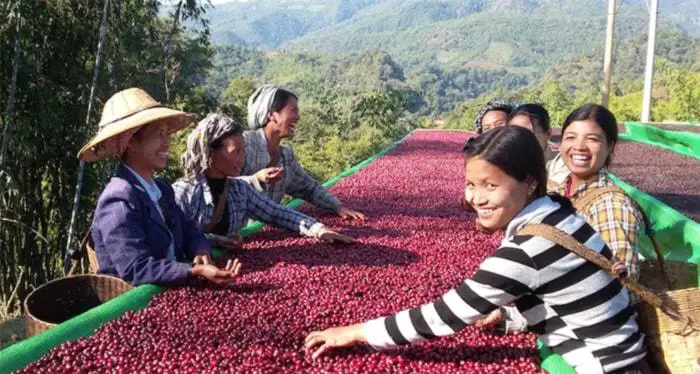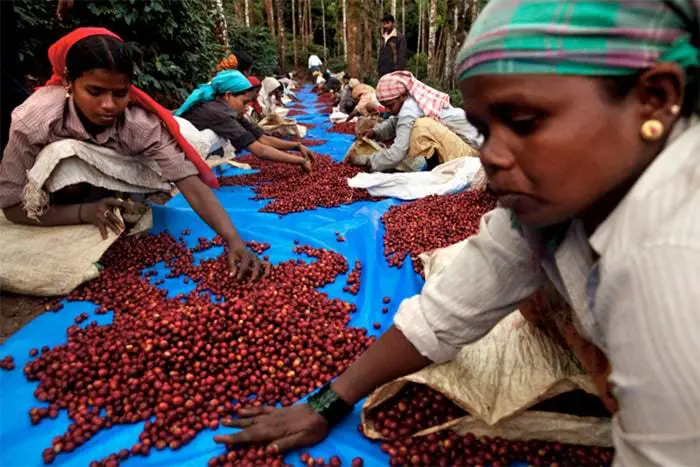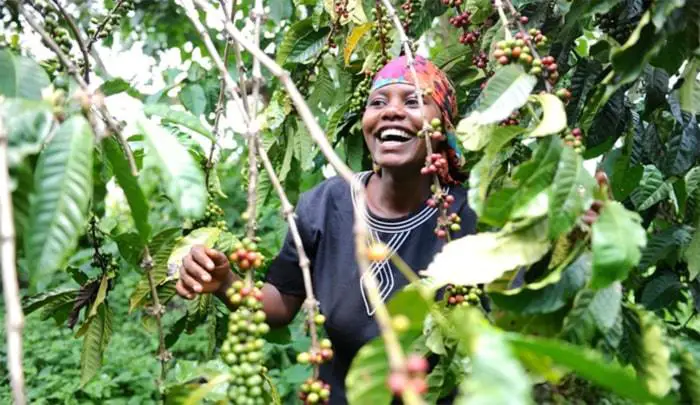From every beauty queen to John Lennon, the drive to end world hunger has never really been one without support. That said, the solution has remained elusive. But does that mean it is an impossible feat? Absolutely not! It just requires a little coffee-driven creativity.
If you’re a regular reader and purveyor of ‘the good stuff’ here at CoffeeGrindGuru, then you are well-aware that we aim not to proselytize certain topics (e.g., Veterans sourcing coffees, lady-bosses roasting the best beans, et al.). What we do endeavor to, er, do, is merely draw your attention to some teensy-tiny ways that your daily cup o’ joe can make a difference.
That said, why not consider ending world hunger?
No, seriously!
Coffee and poverty and hunger, oh my!

Coffee might not be able to cure all ills, as previously discussed, but it is a cash crop for many middle-to-low income countries like Honduras and Vietnam as well as many upper-to-middle income nations like Mexico, Brazil, Guatemala, Costa Rica, Thailand, and Venezuela.
So, what does that all mean?
Well, don’t take it from us, but countries that were once food-insecure, ravaged by war, overly dependent on oil exports, land locked, or without access to consumer markets are now supplying those coffee consuming and paying nations (e.g., the EU, USA, Japan, and Russian Federation) with high-quality beans on the order of:
- Arabicas at 13.7B (yes, with a B!) pounds in 2016
- Robustas at 8.2B (again, that is a B!) pounds in 2017
- Burundi, Rwanda, Ethiopia, and Togo boosted Africa’s exports by 4% since 2014
- Thailand, Vietnam, Yemen, and PNG did the same for Southeast Asia but at 7.9%!
Famine be gone!

Facts and figures are great, but we want to help you move beyond the fluff and hashtags. To wit, we want to give you the option to make an informed decision when sourcing your coffee beans be it ethically-minded, cost-conscious, or environmentally friendly.
The bottom-line, though, is if you’re going to buy a bag o’ beans or a cup o’ joe, then why not funnel your pennies and pence toward the reduction of famine in African and Asian countries? Quickly:
- As previously discussed here, nearly 70 percent of coffee farm work is performed by women
- Women in agriculture, when given the tools, resources, and mentorship, have reduced hunger from 12 to 17 percent
- Women in coffee increased production in developing countries from 2.5% to 4%
- Women, given their focus on family and childcare, can eliminate food insecurity for 100 to 150M persons and…
- reduce the likelihood of nutritional stunting in children who…
- are less likely to ‘lash out’ by joining terrorist networks and the like as their physiological needs are met and their families are more financially able to send them to school or uni
Call-to-action: Buy the IWCA or EAFCA or…

While we would never strong-arm you or guilt-trip you into buying bird-friendly or lady-based coffee, we just want to give you the option to look for key partner-certified coffees that help entrepreneurs in Burundi, Ethiopia, Kenya, Rwanda, Tanzania, and Uganda (vis-à-vis International Women’s Coffee Alliance (IWCA) or Eastern African Fine Coffees Association (EAFCA)) not only grow their businesses, but help reduce food dependency on international aid organizations.
So, again, even if you prefer to shop at your local farmer’s market, perhaps you could simply have a glocal conversation or a quick think about how, say, purchasing one bag of Rwandan beans could help that country move beyond the spectre of genocide, generate sustainable businesses, and create environs more focused on the future than the past.
Just food (or drink!) for thought! Enjoy!

